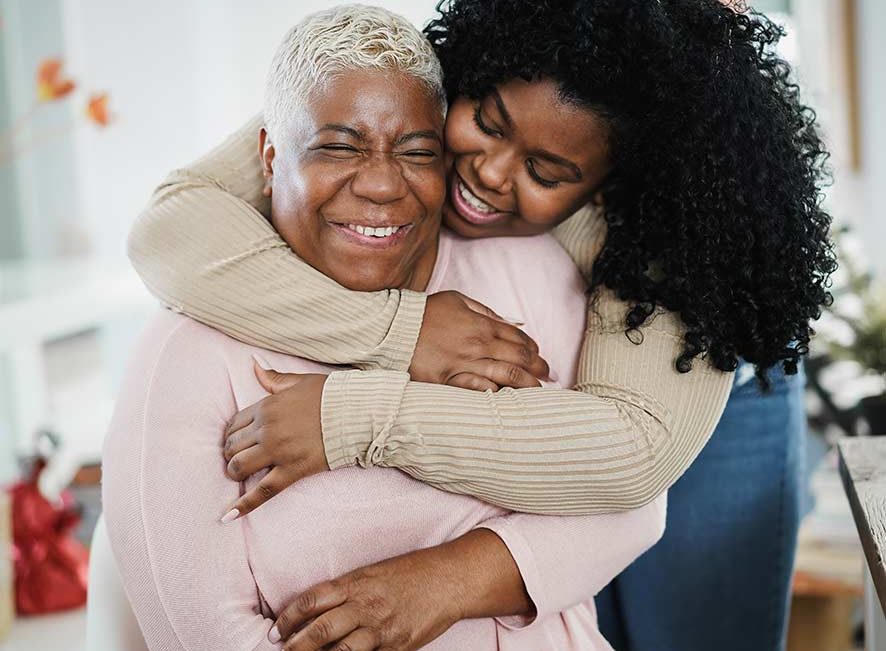The Growing Demand for In Home Care Givers: Factors Family Members Choose Expert Care Over Standard Facilities
The boosting choice for at home caregivers over standard centers is a considerable fad improving the landscape of senior care. Households are drawn to the benefits of customized care that aligns with specific needs and preferences, allowing senior citizens to preserve a feeling of freedom in an acquainted environment. This change additionally highlights the psychological and economic factors to consider that influence decision-making. As we explore the myriad aspects adding to this expanding demand, the implications for both families and caretakers come to be progressively evident. What does this mean for the future of caregiving?
Customization of Treatment
Customization of treatment in home caregiving is important for satisfying the one-of-a-kind requirements of each individual (ndis plan manager). This method guarantees that treatment plans are customized to the details needs of the individual, considering their case history, personal choices, and lifestyle. By focusing on the person's unique scenarios, caregivers can promote a feeling of self-respect and freedom, which is often doing not have in even more institutionalized setups

Home caregiving enables for constant observation and alteration of care methods, guaranteeing that modifications in wellness standing or individual choices are promptly dealt with. Eventually, customized care in home setups considerably adds to the overall well-being of customers, making it a vital element of modern caregiving methods.
Convenience of Home Setting
The comfort of a home atmosphere plays an important duty in the performance of home caregiving. Several people, particularly seniors, experience enhanced anxiety and anxiety when put in unfamiliar setups such as conventional care facilities.
Additionally, the home environment enables for a tailored method to caregiving, suiting private choices and routines. Families can produce an atmosphere that mirrors their enjoyed one's lifestyle, making certain that treatment is supplied in a manner that feels comfy and natural. This individualized setup urges much better communication and interaction in between clients and caretakers, cultivating count on and relationship important for efficient care.
Furthermore, the comfort of home can facilitate social links, as family members and close friends can see a lot more quickly, providing essential psychological support. ndis plan manager. In general, the home environment not only helps to maintain self-respect and freedom however likewise contributes to a better of treatment, making it a recommended option for family members seeking expert caregiving services

Improved Freedom for Elders
Home caregiving not only provides convenience however additionally promotes boosted self-reliance for seniors. Unlike conventional facilities, at home treatment enables senior citizens to maintain their day-to-day regimens and participate in acquainted activities within their very own environment. This freedom is crucial for their emotional health and overall quality of life.

Furthermore, in-home caregivers can adapt their solutions to cater specifically to the special needs of each elderly, advertising a better sense of control. This versatility ensures that seniors can enjoy their pastimes, fraternize household and pals, and continue to be active in their communities, further boosting their sense of independence.
Ultimately, at home caregiving not just attends to the physical needs of senior citizens however also encourages them to lead meeting lives, making it a significantly prominent choice for families seeking the very best care remedies for their loved ones.
Cost-Effectiveness of In-Home Treatment
In-home treatment provides an economical option to standard nursing centers, permitting family members to offer high quality support for their liked ones without sustaining outrageous expenditures. The costs connected with retirement home can be frustrating, often surpassing $100,000 yearly, which can drain pipes funds rapidly. On the other hand, at home care solutions commonly bill on a per-visit or per hour basis, making it possible for households to tailor care plans according to their spending plan and particular needs.
Additionally, at home care removes additional costs related to center living, such as transport, board and space, and various administrative charges. Family members can choose to involve caregivers just when essential, potentially decreasing overall expenditures. A considerable benefit of in-home care is the capability to keep personal routines, which can add to better emotional wellness and decrease the demand for costly medical interventions resulting from sudden way of life changes.
Insurance coverage, including long-term treatment insurance policy, often includes in-home care services, further improving financial availability (ndis plan manager). Generally, the cost-effectiveness of in-home treatment not only eases the financial problem on households however additionally advertises a more tailored technique to care that aligns with private choices and requirements
Structure Stronger Family Members Connections
Giving treatment in a familiar setting cultivates deeper household links, allowing liked ones to actively take part in the caregiving process. In-home care develops possibilities for family members to involve meaningfully with their disabled or elderly family members, promoting emotional bonds that can be difficult to accomplish in institutional setups. The existence of professional caretakers allows relative to concentrate on their relational functions instead of being strained by the physical demands of treatment.
Additionally, at home care enables households to maintain their cherished regimens, which can diminish feelings of anxiousness and disorientation frequently related to moving to care centers. Shared meals, familiar environments, and the convenience of home offer a feeling of security that enhances health and promotes open interaction.
Households can collaborate with caregivers to create customized care strategies that show the private choices and needs of their liked ones. This collective strategy not just equips the senior yet also reinforces the family system, as members share obligations and sustain each other with challenging times. Inevitably, at home treatment cultivates a caring setting where partnerships can flourish, boosting the top quality of life for both caretakers and recipients.
Conclusion
The her response increasing preference for in-home caretakers highlights a significant shift in exactly how families come close to elderly care. As these elements straighten, in-home care emerges as an engaging alternative to standard facilities, inevitably promoting the health and quality of life for senior citizens.
Family members are attracted to the advantages of customized treatment that aligns with specific demands and preferences, permitting senior citizens to keep a feeling of freedom in a familiar setting.At home care uses a cost-efficient option to typical nursing facilities, permitting family members to give high quality support for their loved ones without sustaining inflated expenditures. In comparison, in-home treatment services normally look what i found charge on a hourly or per-visit basis, allowing families to customize care plans according to their budget and particular demands.
In-home care produces opportunities for family members to engage meaningfully with their disabled or elderly family members, advertising psychological bonds that can be difficult to accomplish in institutional settings.The increasing preference for at home caregivers highlights a significant change in exactly how families approach elderly care.
 Edward Furlong Then & Now!
Edward Furlong Then & Now! Neve Campbell Then & Now!
Neve Campbell Then & Now! Ralph Macchio Then & Now!
Ralph Macchio Then & Now! Nancy McKeon Then & Now!
Nancy McKeon Then & Now! Jeri Ryan Then & Now!
Jeri Ryan Then & Now!